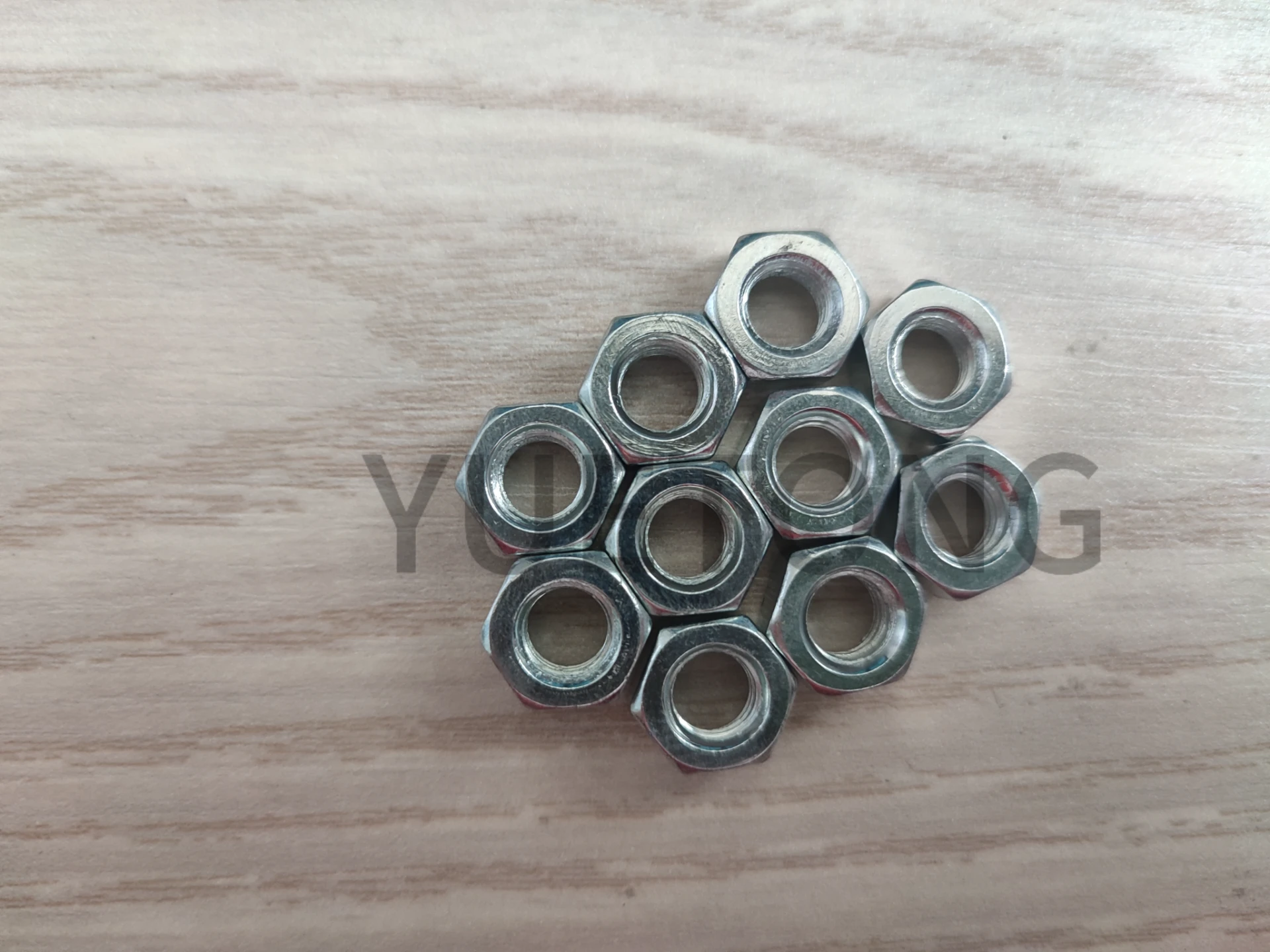Nov . 20, 2024 16:22 Back to list
hex lock nut
The Importance of Hex Lock Nuts in Modern Engineering
In the world of engineering and manufacturing, the need for reliable fastening solutions is paramount. One component that stands out in this regard is the hex lock nut. The hex lock nut, often referred to as a locking nut, is a specialized type of nut that provides enhanced resistance to loosening under vibration and torque. This article will explore the significance of hex lock nuts, their applications, and why they are essential in modern engineering.
Understanding Hex Lock Nuts
Hex lock nuts are characterized by their hexagonal shape, which allows them to be easily tightened using a wrench. The primary feature that sets hex lock nuts apart from standard nuts is their ability to maintain tension and prevent loosening. They achieve this through various design mechanisms, such as nylon inserts, serrations, or special shapes that create friction when tightened against a bolt. The most common types include nylon-insert lock nuts, serrated flanged nuts, and prevailing torque lock nuts.
Applications in Various Industries
Hex lock nuts are commonly used across a wide range of industries, including automotive, aerospace, construction, and machinery. In the automotive sector, for instance, these nuts are vital in securing critical components such as the suspension, wheels, and engine systems. Their ability to withstand significant vibrations ensures that vehicles operate safely over various terrains.
In aerospace engineering, hex lock nuts are crucial for securing components of aircraft that must endure extreme conditions. The vibrations and forces experienced during flight require fastening solutions that can reliably keep parts in place. Hex lock nuts ensure that these parts remain secured, contributing to the overall safety of the aircraft.
Construction is another field where hex lock nuts find extensive use
. From the assembly of steel structures to securing heavy machinery, these nuts provide the strength and stability necessary for enduring loads and environmental conditions. Their ability to resist loosening is critical in maintaining the integrity of buildings and infrastructure.hex lock nut

Advantages of Using Hex Lock Nuts
1. Vibration Resistance One of the most significant advantages of hex lock nuts is their resistance to loosening due to vibration. This is crucial in applications where equipment is subjected to constant movement or oscillation.
2. Cost-Effectiveness While hex lock nuts may be slightly more expensive than standard nuts, their ability to prevent mechanical failure can save companies significant costs associated with maintenance, repairs, and production downtime.
3. Versatility Hex lock nuts are available in a variety of materials, including steel, stainless steel, and various alloys. This versatility allows them to be used in diverse environments, whether exposed to chemicals, high temperatures, or corrosive elements.
4. Ease of Use Their hexagonal shape allows for easy installation with standard wrenches, making them user-friendly for assembly lines and maintenance crews.
Conclusion
Hex lock nuts are an essential component in modern engineering and manufacturing. Their unique design offers unparalleled resistance to loosening, making them a reliable choice for various applications across multiple industries. As technology advances and the need for stronger, more durable fastening solutions continues to grow, hex lock nuts will undoubtedly remain a crucial part of the engineering toolkit. Investing in quality hex lock nuts is not merely a matter of choosing a fastener; it is an investment in safety, reliability, and long-term performance. Whether in a vehicle, an aircraft, or a construction project, the significance of hex lock nuts cannot be overstated, as they play a crucial role in ensuring the structural integrity and operational efficiency of countless systems in our modern world.


